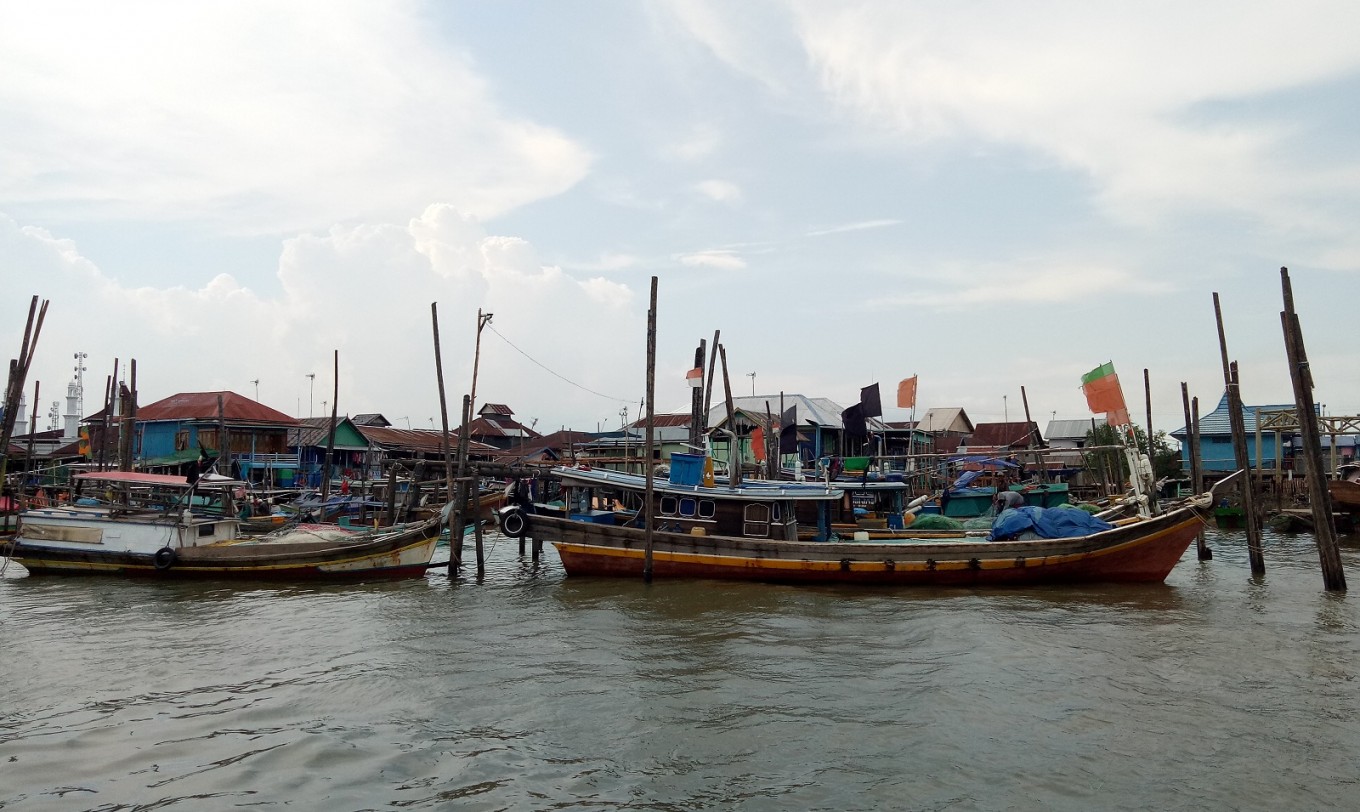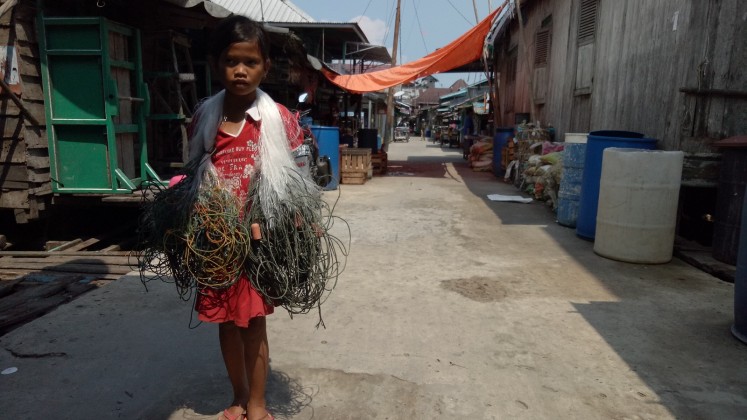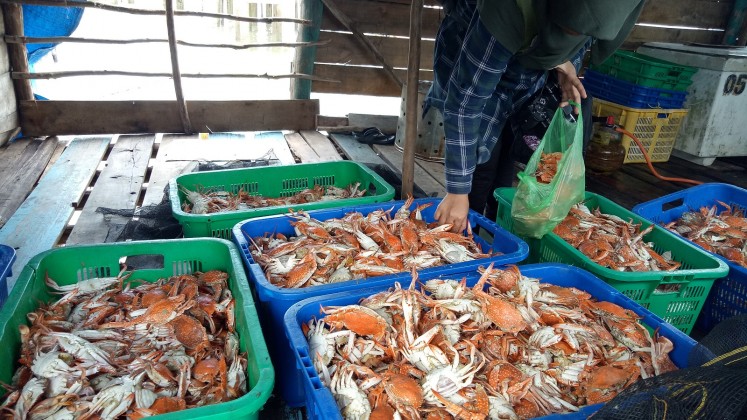Popular Reads
Top Results
Can't find what you're looking for?
View all search resultsPopular Reads
Top Results
Can't find what you're looking for?
View all search resultsSembilang National Park villagers struggle to clear the trail for ecotourists
Waste management remains a problem.
Change text size
Gift Premium Articles
to Anyone
T
he wooden hut by the Sungsang IV village pier in Banyuasin regency, South Sumatra, was crowded with visitors at the end of November.
The aroma of boiling crabs wafted from the small hut, owned by Rian, as visitors chose their crabs from the six large containers on display.
Rian said his hut, where the day’s catch was collected, had seen more tourists lately. They came to enjoy the crabs, although the crustaceans were not caught specifically for them.
Rian said the crabs were actually meant for a buyer in Lampung, but he said he also served visitors who wanted to enjoy the crabs.
"I sell them at the same price. It doesn't cause any harm because the buyer in Lampung does not set any particular amount per shipment," said Rian who has been in the business for 15 years.
Sungsang IV is one of the closest villages to Sembilang National Park. The park's mangroves and rich flora and fauna have long attracted tourists and researchers, especially between October and February, when migrating Siberian birds arrive in the park. Pods of dolphins come as a bonus for those visiting the waters around Alangan Tikus Island.
Since UNESCO declared Berbak-Sembilang National Park a world biosphere reserve in 2018, local administrations have sought to develop it into an ecotourism area. Nearby villages have been outfitted to attract tourists. It was considered a necessary move, as it takes about 2.5 hours to reach the park from Palembang city, plus an hour overland trip.
However, the fishing villages still face development issues, especially related to waste management. Plastic waste sits on the main pier of Sungsang IV and floats on the water’s surface. Garbage piles up under the village’s stilt houses.
A girl carries fishing nets through the village. Most of the residents work as fishermen. (JP/Yulia Savitri)Read also: Into the wild: Curious case of Dutchman who disappeared in South Sumatra forest
Sungsang IV village head Romi Adi Chandra acknowledged that waste issues were a big challenge. Animals such as pigs, lizards and monkeys freely wander around the 188,000-hectare village.
"We’ve just started focusing on people's tourism awareness, including on how to run homestays and manage garbage," Romi told The Jakarta Post.
The move has received support from the regency administration, state-owned enterprises (BUMN) and private companies.
The town is also developing its unique wedding tradition and ancestral graveyard to serve as tourist attractions.
"We hope ecotourism development will help improve the wellbeing of the people, 95 percent of whom are fishermen," Romi said.
To get to Sembilang National Park from the village, it takes about 1.5 hours by speedboat. To enjoy the charms of the migrating birds, the ideal time to depart from the village is 6 a.m. as the birds are usually active in the area between 7:30 and 9 a.m.
Banyuasin II district head Salinan said there were five villages located around Sembilang National Park and that all of them were being developed into ecotourism areas. Tourist packages were being prepared to help tourists visit the region, and a new event had been organized to be conducted in the five villages every June: Sembilang Festival.
"There are many challenges we face besides infrastructure," Salinan said.
Sembilan Dangku Landscape Management Partnership (KELOLA Sendang) deputy project director David Ardian said ecotourism would have a positive impact on both conservation and the local economy.
KELOLA Sendang is a landscape management project established by the Zoological Society of London (ZSL), the Indonesian government and the South Sumatra administration to address the challenges of deforestation, peatland degradation and climate change.
David said the preservation of nature would be ensured if people enjoyed economic benefits from it.
"Both can be in synergy," he said.
Haze from forest and land fires during the dry season this year presented another challenge. It led to a 40 percent decrease in the number of migrating birds traversing the area from October to November this year.
“We have analyzed it. It’s because of the haze,” Sembilang II Park’s management section head Afan Absori told the Post.
He said that from December to February other migrating birds would arrive in the Banyuasin mangrove area.
Afan said the park management had secured a zoning permit for tourism.
“Visitors are welcome to walk along the rivers and enjoy the mangroves and other existing habitats,” he said. (yun/kes)









